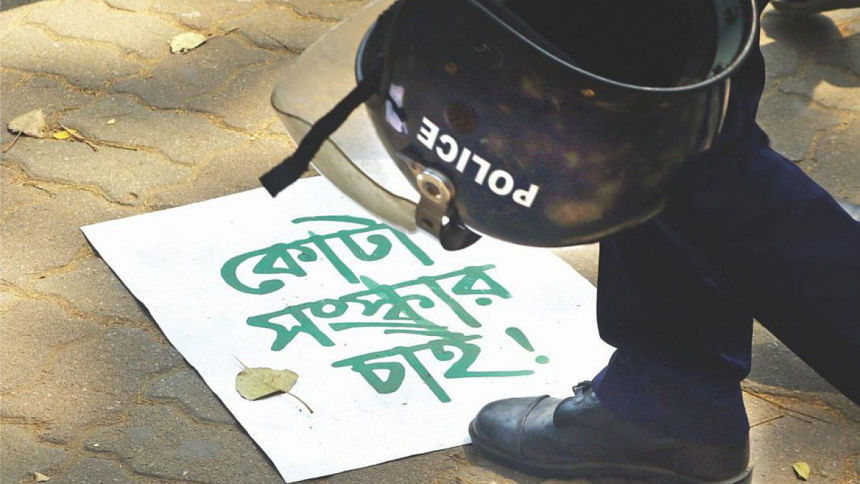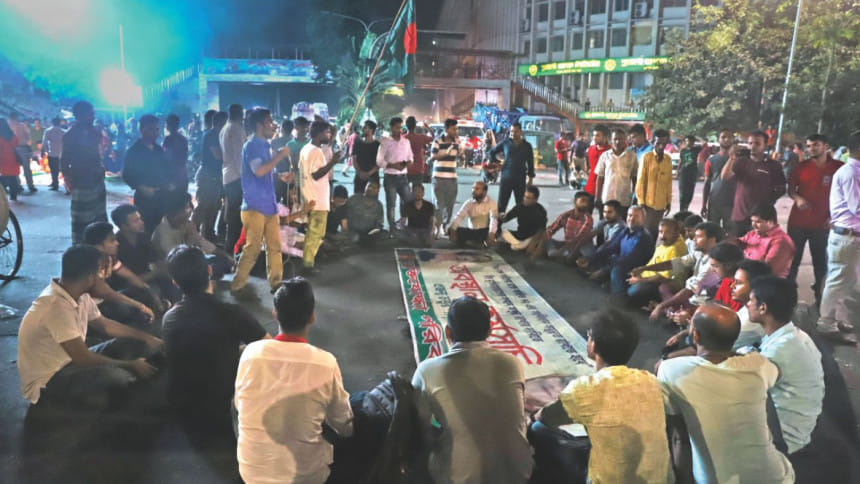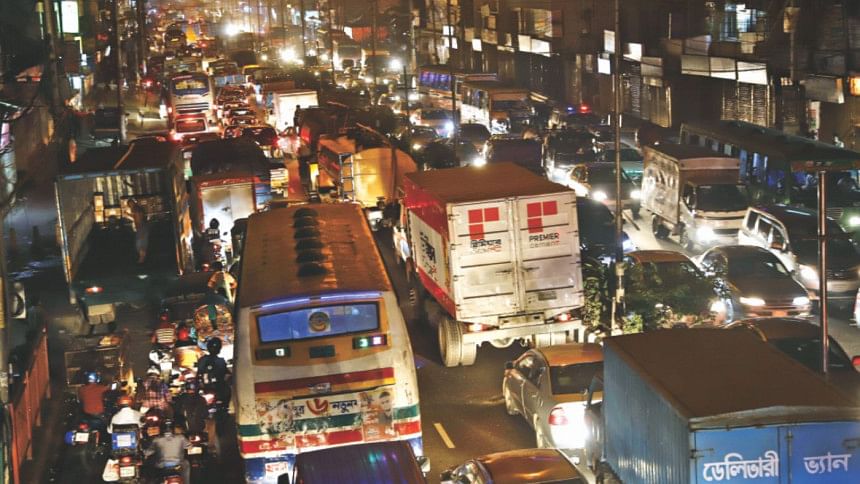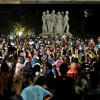Completely on merit

The cabinet has approved a high-powered government committee's decision to abolish the existing quota system for class-I and class-II jobs in the civil service.
"There will be no quota for class one and class two jobs. Appointment for these jobs will be made directly on the basis of merit," Cabinet Secretary M Shafiul Alam told reporters after a weekly cabinet meeting chaired by Prime Minister Sheikh Hasina yesterday.
However, if quota is required for the disadvantaged communities in the future, the government could make an "appropriate decision" on it, he said.
The quota system will remain in force for class-III and class-IV jobs, added Shafiul.
READ MORE: An unrealistic quota system
The government documents now mention “grade” instead of “class” while referring to the tiers in the public service.
The cabinet approval comes in the wake of months-long quota reform demonstrations that saw arrests of leaders of the quota movement and attacks on students.
On September 17, the quota review committee, headed by the cabinet secretary, recommended scrapping the quota system for class-I and II jobs (from 9th to 13th grade) and submitted its report to the PM.
Quota movement leaders welcomed the move, but said they would not comment until the gazette notification on abolition of the quota system is published.
READ MORE: Long calls fall on deaf ears
"We cannot say anything right now as there are still some ambiguities regarding the quota issue. There should not be any vagueness here," Bin Yeamin Molla, a joint convener of the quota reform movement, told this newspaper.
He urged the government to meet their two demands -- withdrawal of all cases against protesters and punishment of those who attacked demonstrators.
Meanwhile, at a press conference at the Gono Bhaban yesterday, the PM said when she had announced that there would be no quota, a new demand was raised for reforming the quota system instead of abolishing it.
"If anyone wants quota now, he will have to wage a movement for it. And if the movement turns out to be successful, we will think about it," she said.

At present, about 56 percent of government jobs are reserved for candidates from various quotas. Of this, 30 percent are for freedom fighters' children and grandchildren, 10 percent for women, 10 percent for people of underdeveloped districts, five percent for members of indigenous communities and one percent for physically challenged people.
The quota system was introduced through an executive order in 1972 and was amended several times. From 1972 to 1976, 20 percent was recruited on the basis of merit. Merit-based recruitment was increased to 40 percent in 1976 which continued until 1985 when the percentage of merit-based recruitment was upped to 45 percent.
But in 2012, one percent quota was introduced for physically challenged people, reducing merit-based recruitment to 44 percent.
Briefing reporters at the secretariat, Shafiul said the committee's report, placed at yesterday's cabinet meeting at the PMO, made three recommendations.
The first one was merit-based recruitment from grade-9 to 13, and the second one was scrapping the existing quota system in those grades.
The third one was that the government will make necessary decisions in the future if it feels quota is needed for the disadvantaged communities, he said.
The cabinet approved all the three recommendations, Shafiul said.

"The summary of the first two recommendations is that all the recruitment to class-I and class-II jobs will be made directly on the basis of merit."
A gazette notification will be issued in two to three days, he mentioned.
"We will convey the cabinet's decision to the public administration ministry today or tomorrow. They will issue a gazette notification," he said.
Once the gazette notification is issued, it will come into effect, said the cabinet secretary, adding that it will not be placed before parliament.
Asked whether the decision will be applicable to the 40th BCS examination advertised by the Public Service Commission recently, he said the circular for the BCS exam mentioned that whatever the government decides on the quota issue would be applicable here.
On July 2, the government formed the seven-member review committee comprised of secretaries to the public administration ministry, finance ministry, Liberation War affairs ministry, law ministry (legislative division), the PSC, and the acting secretary to the PMO.
Meanwhile, Greater Chittagong Hill Tracts Students' Council has protested the government decision.
In a statement, the organisation said the indigenous communities will face more discrimination because of the decision.
In February this year, a large number of students of public universities and jobseekers, launched the movement demanding reforms in the quota system.
The movement intensified in April when students across the country took to the streets. They blocked key points in the capital and roads and highways elsewhere.
In the wake of mass protests, the PM on April 11 announced in parliament that the quota system would be scrapped.
But as no gazette notification was issued in this regard, the students involved in the movement began boycotting classes and examinations in all universities and colleges.
On June 30 and July 1, alleged BCL activists attacked protesters at Dhaka and Rajshahi universities, leaving a number of students injured. In the following days, law enforcers arrested and remanded a number of quota reform leaders.
The movement lost momentum following the arrests and attacks on demonstrators.

 For all latest news, follow The Daily Star's Google News channel.
For all latest news, follow The Daily Star's Google News channel. 






Comments